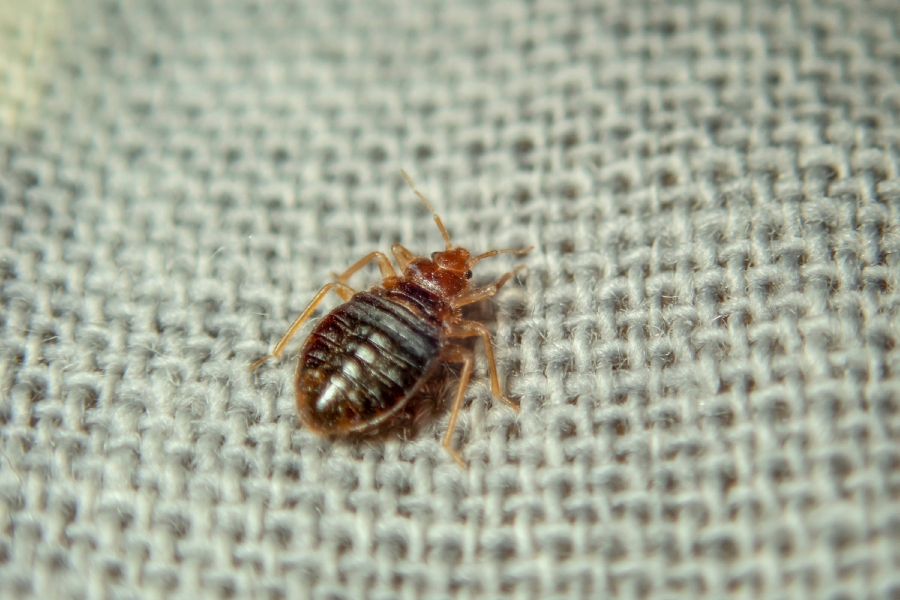Hong Kong authorities have been on the alert for bedbug infestations in the city ever since outbreaks of the pest were reported in Paris, London, and Seoul over the past few months. Fears about a potential outbreak in the SAR have been fuelled by images and videos of bedbugs on the Airport Express and the MTR.
Are there bedbugs in Hong Kong?
There are two types of bedbugs — the common bedbug and the tropical bedbug — that have been recorded in Hong Kong, according to the Food and Environmental Hygiene Department. However, while there have been reports on social media about these pests being spotted on the Airport Express and the Tseun Wan line of the MTR, authorities have said they have not found any confirmed instances of bedbugs at either the airport or on the city’s trains.
What is Hong Kong doing to prevent an outbreak?
Last week, local authorities began distributing leaflets to passengers arriving at the airport to spread awareness about “bedbug prevention and control”. A spokesperson for the Food and Environmental Hygiene Department added that Hongkongers who travel abroad should check for bedbugs in hotels and public spaces, and that they should check their personal belongings for any signs of the parasites when they return from a trip outside the city.
The MTR, which runs the Airport Express, also responded to reports about a suspected bedbug sighting on the train by deep-cleaning the carriages on Friday. The railway corporation added that it would begin pest-control work on other trains that use velvet seating, such as the Disneyland Line and East Rail Line first-class carriages.
On Saturday, the Environment and Ecology Bureau held a meeting with members of the Airport Authority Hong Kong, the MTR, the hotel sector, the Tourism Commission, and other government departments to discuss how to prevent a bedbug outbreak in the city. Officials drew up a plan to tackle potential hotspots, such as the Airport Express, the airport, the Kai Tak Cruise Terminal, and hotels.
What are bedbugs?
Bedbugs are flat, oval-shaped wingless insects that pierce the skin of mammals to feed on their blood. They do not spread disease, but people bitten by them may experience painful swelling and irritation at the site of the bite. The Centre for Health Protection advises that anyone bitten by these pests should avoid scratching the bites as “excessive scratching… increases the chance of secondary skin infection.”

Bedbugs are most commonly found in the folds of mattresses and sheets, but are usually transported across great distances by people. Authorities advise people who have infestations to wash blankets and bedclothes on which the parasites are found in hot water (60°Celsius), and then dry them in the sun or iron them. If you’re travelling abroad, avoid soft-cased luggage as bedbugs can attach to them, and pack your clothes in resealable plastic bags so that the parasites cannot get into them.
What caused the international outbreak?
Reports of recent surges in bedbug infestations in London, Paris and most recently, South Korea, have been attributed to a rise in international travel after Covid-19 restrictions were lifted across the world. In addition, a study published by the Annual Review of Entomology states that the parasites have developed a resistance to insecticides, which has contributed to these outbreaks.
Header image credits: on9page via Instagram & MTR Service Update via X




